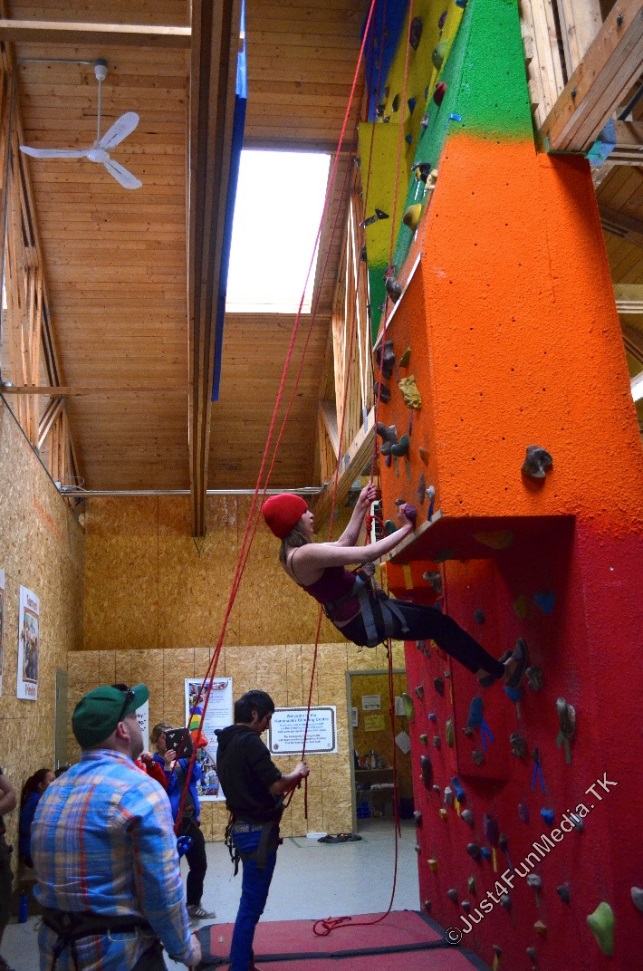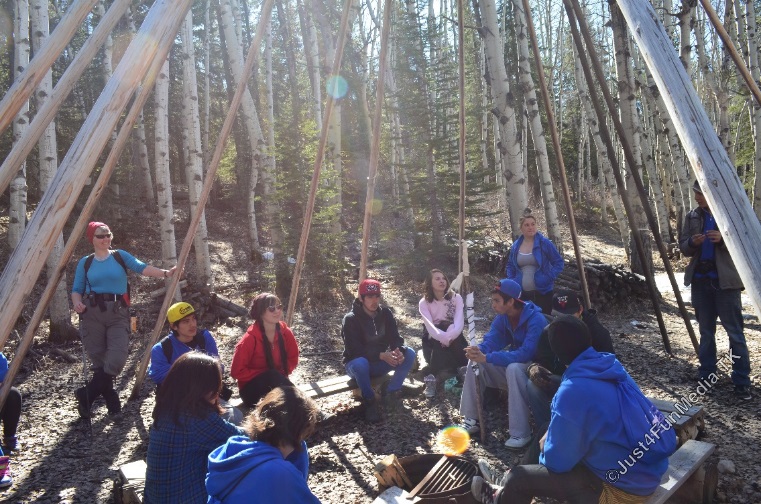“In completing The D of E, I found the Award program to fit perfectly into my lifestyle. It gave me reason to pursue my passions in life and push them to the limit. I have spent most of my Award experience sailing the North Atlantic. I further participate in the physical recreation of football, wrestling, rugby; the skill of playing the trumpet, violin, singing; and I have learnt to appreciate service to the community. I have become increasingly passionate about the outdoors like D of E co-founder, Dr. Kurt Hahn” – Quintin Lucyk (Gold Award Holder, 2014).
Who is your target audience?
The program is designed for youth between 14 and 24 years old. It is all inclusive, and youth of different race, gender, sex, religion, and educational and social statuses can pursue the non-competitive DofE challenge.
What programs and services are offered  by your organization?
by your organization?
Our mandate is to facilitate youth development by encouraging personal discovery and growth, self-reliance, perseverance, responsibility to self and service to communities. In fulfilling this mandate, the program requires participants to enrol in one of three Award levels – i.e. Bronze, Silver, and Gold levels – at any time in order to achieve their personal goals in the areas of Community Service, Skill Development, Physical Recreation, and Adventurous Journey. At the Gold Level, participants are further challenged to accomplish a Residential Project.
To offset local challenges to youth involvement, we have tailored the program in order to make the program accessible to every young person in this province. Our assessment on why many young people are not involved in the program revealed that the program was inaccessible, especially in geographical terms. To circumvent this problem, we made some local adjustments to the Award. Among these are: the School Credit Project, which allows students to take the program as a high school course; the Distance Learning Project, which makes the program accessible online; and the Community Youth Challenge Project, which was specifically designed to take the program to youth in our Northern, remote, and Aboriginal communities.
What is one program that you would like to showcase?
The Community Youth Challenge (CYC) Project: This is a joint Duke of Edinburgh’s Award, Saskatchewan Division – Royal Canadian Mounted Police (RCMP) initiative. The objective of the CYC Project is to offer the Award program to youth in rural, remote and Aboriginal communities within the province. Besides making the Award accessible to young people of these areas, the CYC project is envisioned to instill prosocial behavior among marginal/high risk youth; thereby, promoting safer, progressive communities. Local Leaders/mentors are relied on to locally administer the program.
What is one thing people may not know about your organization?
Some people in this province are  unaware of our existence, and for those who do, they are unaware of the extent to which the cause of the organization aligns with their day-to-day activities. That is to say, participants are not required to set aside extra time to fulfill the requirements of the program. They simply have to document those activities and present them for the Award. Let us use the Physical Recreation component as an example in demonstrating this.
unaware of our existence, and for those who do, they are unaware of the extent to which the cause of the organization aligns with their day-to-day activities. That is to say, participants are not required to set aside extra time to fulfill the requirements of the program. They simply have to document those activities and present them for the Award. Let us use the Physical Recreation component as an example in demonstrating this.
In many people’s view, in order to fulfill the requirements for the Physical Recreation section, participants need to be on a team or engaged in conventional sporting activities. This is, however, not the case. The program is designed to accommodate everyone’s needs and lifestyle. So, for our participants living on farms, for instance, we accept their farm chores as valid whenever their Award applications are being appraised. This is because we acknowledge the physical challenge these chores present participants, and the Award program is designed to accommodate everyone’s lifestyle. This flexibility applies to all the other components.
With that established, we encourage young individuals in this province to channel their daily activities through the Award program so as to receive cross- city, province, and country validation. Given that the program is in over 142 countries and the standard is maintained across countries, the program authenticates the achievements of the youth of this province not only within Canada but also in many other countries, poising them to secure competitive career, scholarship, and university admission offers across the globe.
What are you working on right now?
Presently, we are working on enrolling players from the Saskatchewan Junior Hockey League (SJHL) into the program. Many of these player, if not all of them, are heavily involved in activities that make them eligible for the Award, including community service, physical recreation, skill development, and adventurous journeys. We, therefore, thought it important to offer them the opportunity of channeling their daily activities through the program so as to receive international recognition for activities they perform for leisure.
For more information on the The Duke of Edinburgh's International Awards - Saskatchewan Division, visit http://www.dukeofed.org/sk.



